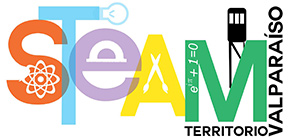The Role of NFTs in Modern Digital Culture 1158074079

The Role of NFTs in Modern Digital Culture
Non-fungible tokens (NFTs) have emerged as one of the most revolutionary developments in the digital landscape of the 21st century. As blockchain technology evolves, NFTs are redefining the concepts of ownership, value, and authenticity in the virtual world. From digital art to virtual real estate, NFTs have penetrated various sectors and are reshaping how we perceive ownership and creativity, making their assessment essential for anyone interested in technology and culture. You can even explore your interests related to the digital universe by checking out The Role of NFTs in Casino Rewards baji999 login for various digital content and communities that utilize NFTs.
The primary function of NFTs lies in their ability to prove ownership of a unique digital item or asset. Unlike cryptocurrencies such as Bitcoin or Ethereum, which are fungible and can be exchanged on a one-to-one basis, NFTs are distinct and cannot be replaced with one another. This uniqueness corresponds to the concept of scarcity, which in turn, fuels demand and value in the ever-expanding digital marketplace. Whether it be digital art, music, or collectibles, the NFT trend has attracted artists, musicians, gamers, and investors alike, bringing a new dimension to how digital goods are created, sold, and owned.
The Rise of Digital Art through NFTs
Digital art has found a new lease on life through NFTs. Before this innovation, many digital artists struggled to monetize their work, as the digital landscape allowed for easy reproduction and distribution. However, NFT technology has empowered artists by granting them a means to sell their work as limited-edition pieces or one-of-a-kind items, significantly changing the dynamics of the art market. This has led to multi-million-dollar sales, with prominent artists receiving widespread recognition and financial reward for their digital creations.
For instance, in March 2021, digital artist Beeple sold an NFT artwork for an astonishing $69 million at a Christie’s auction, spotlighting the potential value of digital assets. This transaction not only validated digital art as a legitimate market but also stirred discussions about the future of art itself. The NFT marketplace has allowed artists from various backgrounds to engage with their audiences directly, bypassing traditional galleries and institutions that previously dictated the art world’s landscape.
Ownership and Authenticity

One of the significant advantages of NFTs is their blockchain-backed authenticity. Every NFT is registered on a blockchain, providing an indelible record of ownership and transaction history, which ensures that buyers can trust the legitimacy of their acquisitions. This blockchain verification significantly reduces the risks of forgery and unauthorized reproduction, a common issue faced by artists and collectors alike. Through transparent sales and verifiable ownership, NFTs have created a new culture of trust among digital creators and consumers.
Additionally, NFTs can incorporate smart contracts—automated agreements written into the blockchain. This allows creators to retain a percentage of future sales when their work is resold, providing artists with ongoing revenue streams that traditional art sales typically do not offer. Such features promote fair compensation and enable artists to benefit from the increasing value of their works over time.
NFTs Expanding Beyond Art
While digital art may be the most well-known application, NFTs have found utility across various sectors. In gaming, NFTs are being utilized to represent in-game assets, such as skins, characters, and virtual real estate, allowing players to have true ownership of the items they earn or purchase. Projects like Axie Infinity and Decentraland have integrated NFT economics into their gameplay, providing players with incentives and an unprecedented connection to their digital investments.
Furthermore, the music industry is also undergoing a transformation via NFTs. Musicians can release exclusive tracks, albums, or even concert tickets as NFTs, granting fans a unique connection to their favorite artists. By cutting out intermediaries, artists are discovering innovative ways to monetize their work while providing fans with exclusive experiences and personal connections.
The Environmental Controversy

Despite the excitement surrounding NFTs, it is essential to address the environmental concerns tied to their production. Most NFTs are built on the Ethereum blockchain, which relies on energy-intensive proof-of-work mechanisms for transaction verification. This process has raised eyebrows, as it results in significant carbon emissions. However, there is a growing movement within the industry to shift towards more energy-efficient solutions, and Ethereum itself is in the process of transitioning to a proof-of-stake mechanism, which is set to drastically reduce energy consumption.
Within this context, it’s vital for NFT creators and consumers to become more aware of their environmental footprints and to seek out platforms that prioritize sustainability. As the conversation around climate change escalates, the NFT community is expected to evolve and adapt its practices to embrace more eco-friendly approaches.
The Future of NFTs
As we look to the future, it’s clear that NFTs will continue to play a critical role in shaping digital culture. The potential applications of this technology extend far beyond art and gaming, with possibilities in fields like education, real estate, and intellectual property. For example, NFTs could revolutionize how we secure credentials and certificates, keeping records transparent and easily accessible on the blockchain.
While the NFT market may face volatility, the underlying technology and trends indicate a move towards broader acceptance and usage. As more industries and individuals discover the benefits of digital ownership and blockchain transparency, NFTs will likely become an integral part of our digital transactions and interactions.
In conclusion, NFTs represent a significant evolution in the digital realm, altering our perceptions and interactions with digital assets. By providing unprecedented ownership structures and empowering creators, NFTs are not just a passing trend but a transformative force that will shape the future landscape of digital culture.

